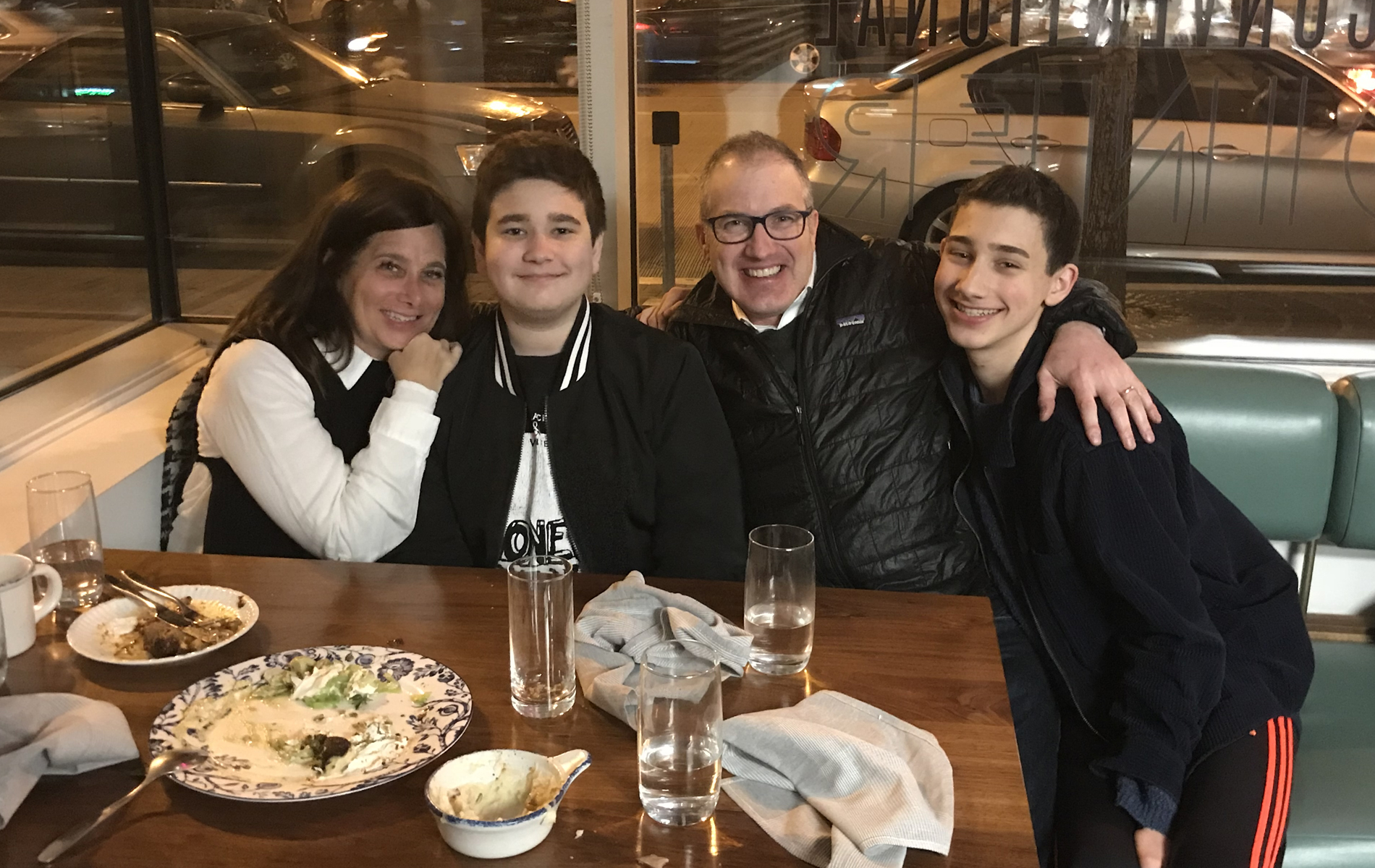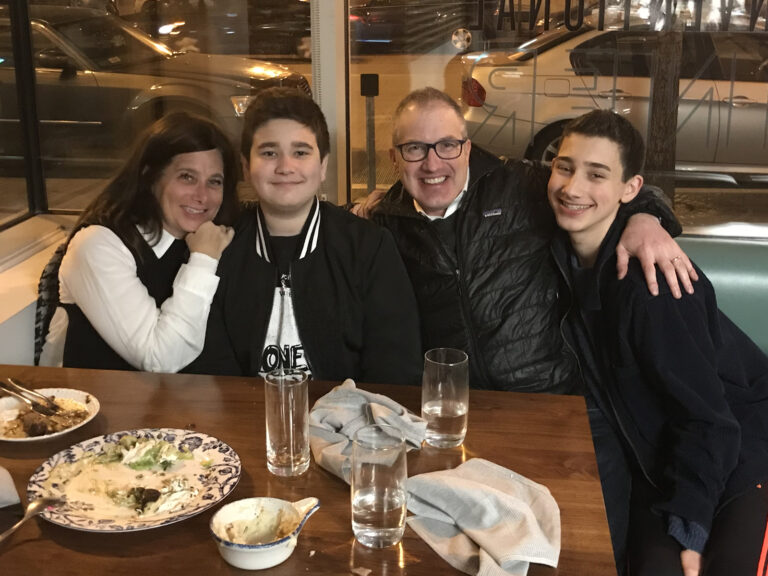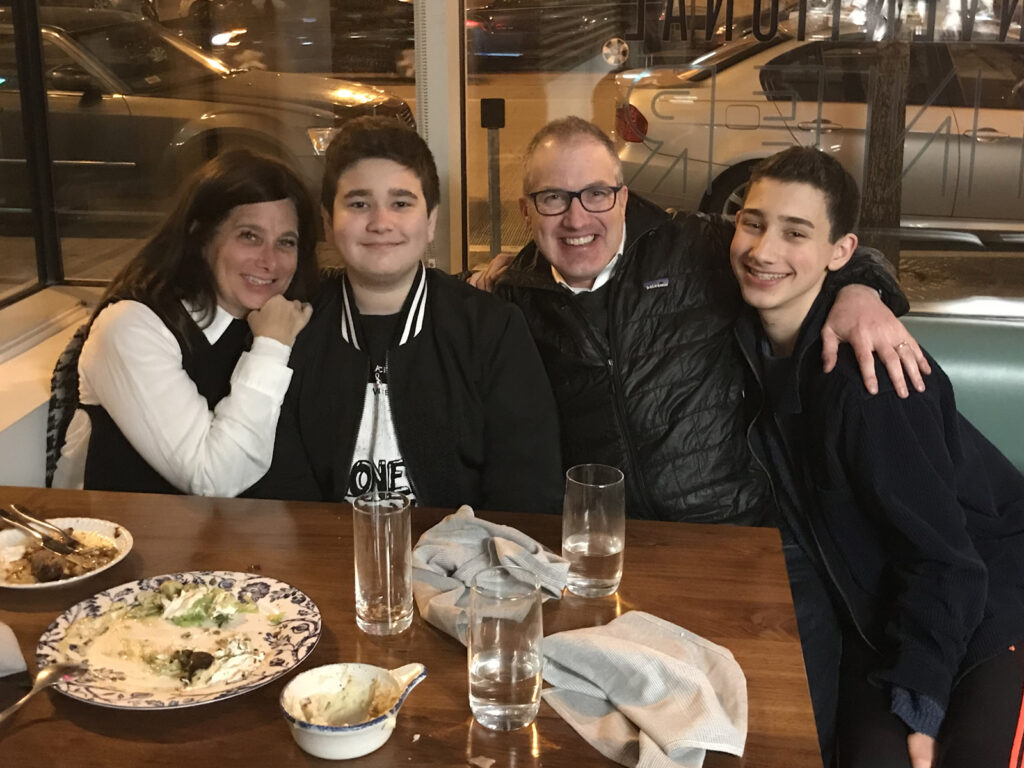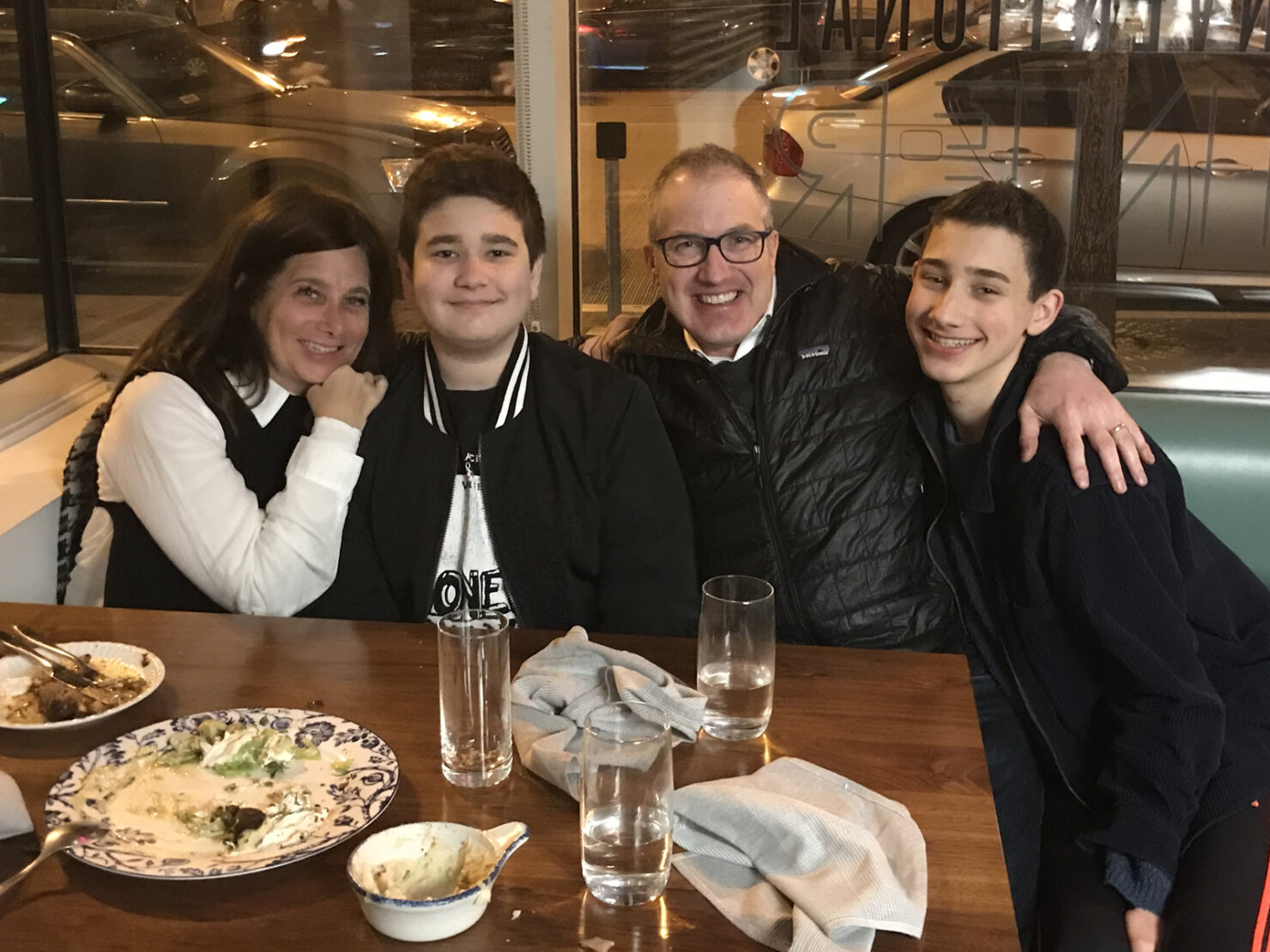In the summer of 2015, Bryan London noticed that his wife Pam was not herself. She seemed depressed, a marked change from the cheerful preschool instructor he knew, the one who never missed an opportunity to laugh with their two sons and thought she missed her calling to be a pro skier. But when Pam was rushed to the hospital near their Arlington, Virginia, home with a medical emergency, Bryan and his family found out it was more than her mood. An MRI revealed a large mass in her brain, and doctors diagnosed Pam with stage 4 metastatic lung cancer.
Thanks to care she received at healthcare institutions across the Northeast and two targeted therapies to treat her cancer, Pam lived six healthy, active years before succumbing to the illness in April 2022. During that time, she and Bryan enlisted the guidance of Massachusetts General Hospital’s Zosia Piotrowska, MD, MHS, a leading expert in epidermal growth factor receptor (EGFR)-positive cancer, which matched the type Pam had. EGFR is a protein on the surface of cells that helps them grow; mutations in the gene that controls the EGFR protein can make cells grow too much, which can cause cancer. Bryan and Pam found Dr. Piotrowska’s direction invaluable as they navigated treatments, clinical trials and heartbreaking choices as Pam’s cancer eventually developed resistance to available therapies.

To set the stage for the next generation of lung cancer treatments and provide more choices for families facing this illness, Bryan has provided a generous gift to Mass General to establish an endowment in Pam’s memory. Endowments are a type of fund that the hospital can invest in the market and carefully manage so that the fund generates reliable annual income, in perpetuity, to support a program or an area of the hospital selected by the donor. Bryan’s endowment will help fund Dr. Piotrowska’s groundbreaking research in developing therapies for EGFR-positive lung cancer that can overcome disease resistance.
“We knew that Mass General was a leader in this specific research, and the connection that Pam had with Zosia made this decision an easy one,” Bryan says. “She was welcoming and patient, an amazing listener who was great at explaining things. She really cares.”
“I don’t often think about legacy. To me, my legacy is my children, and the memories and stories we can tell about the people we love. This endowment is an opportunity to continue to do that for Pam, and I hope it inspires others to give.”
A Wish for More Time
Doctors treated Pam’s illness with the standard of care for EGFR-positive lung cancer: a drug called erlotinib, as the first line of defense, which successfully shrunk her brain lesions, and then another drug, osimertinib, when the cancer mutated and stopped responding to erlotinib. Her side effects were minimal during the three years she was on osimertinib, Bryan says; she was able to enjoy quality time with their teenage sons and even get a new dog through an online rescue organization.
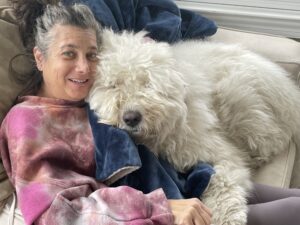
But headaches, muscle deterioration and weight loss in late 2021 led to confirmation of the family’s worst fear: Pam’s cancer had returned, and Dr. Piotrowska explained that the clinical trials available were aimed more at how patients might tolerate new drugs, not necessarily curing the cancer. Pam turned her focus toward embracing support from family and friends and soaking up the last few months with Bryan and their sons. She died the following spring.
“Her main mission when she was diagnosed became knowing that our kids were going to be OK,” Bryan says. “That stretch between the preteen years and their early 20s was a critical growth period for them, and that extra time we had with her was a blessing. We know many people are diagnosed and don’t get that kind of time.”
“Cancer in cerebral spinal fluid is a particular challenge for patients,” Dr. Piotrowska says. “Osimertinib, the second drug Pam was treated with, can work well initially, but when the cancer starts to grow in patients who are on that drug, it can be really difficult.”
Taking Steps to Overcome Resistance
To conquer that challenge, Dr. Piotrowska has focused on EGFR-positive lung cancer research since 2012. Mass General doctors first described the EGFR mutation in a 2004 New England Journal of Medicine article, and Dr. Piotrowska’s timing in the field coincides with when osimertinib first entered phase 1 clinical trials. The trials drove much of Dr. Piotrowska’s interest in the illness, since she and other clinicians saw how the cancer initially responded, but eventually mutated to resist the therapy. With the London family’s support, she will advance her work to find strategies that overcome resistance, especially in cases where the cancer targets the brain.

“This endowment is really going to help us continue to develop drugs that work better and may eventually replace our current therapies so cancers can be controlled for longer and more effectively,” Dr. Piotrowska says. “We’ve made tremendous progress, but cases like Pam’s illustrate that we still have a lot of work to do.
“Philanthropy is key for this type of research,” she adds. “We can use these funds to pilot projects and new ideas that might turn into something bigger. It’s a spark to fuel a lot of our work.”
“I don’t often think about legacy. To me, my legacy is my children and the memories and stories we can tell about the people we love,” Bryan says. “This endowment is an opportunity to continue to do that for Pam, and I hope it inspires others to give.”
To support the Pamela London Endowed Lung Cancer Research Fund, make a gift.
